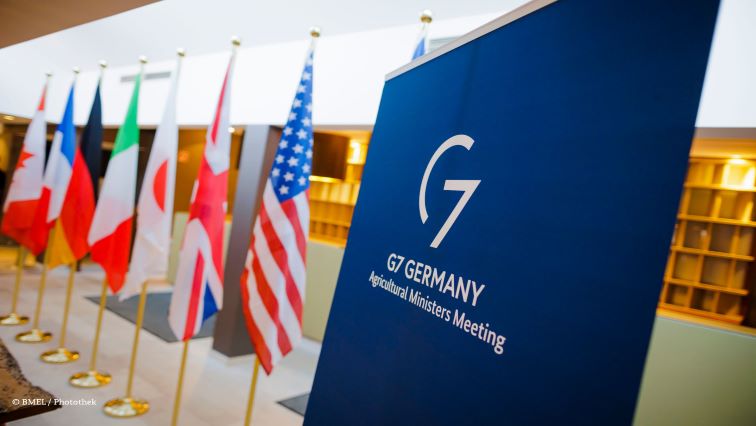According to numbers by the police, about 4000 people, on Saturday, protested against the upcoming G7 Summit being hosted by German Chancellor Olaf Scholz whose country currently hold the presidency of the G7.
The protests took place in Munich, about 100 kilometres away from Schloss Elmau, where the summit is due to start on Sunday, 26 June, and protestors are demanding more actions against climate change, with banners and signs against capitalism and imperialism being displayed as well.
A small altercation between police and protestors broke out during the protest, but no injuries were reported. Other than that the protests remained peaceful.
Leaders of seven of the world’s most advanced economies will meet for three days in southern Germany to discuss various issues, with the war in Ukraine and the resulting global food insecurity dominating the agenda.
Germany has held presidency of the G7 since 1 January 2022 and has expressed that its agenda during the presidential term is “Progress towards an equitable world”. The country which will guide the work of the G7 based on five areas of action namely: sustainability, economic stability and transformation, healthy lives, investments and strengthening alliances.
However, protestors who have come from around the world say that the G7 is not dealing with issues that have a real and direct impact on people.
“I wish that the real global problems, like peace or climate protection or nutrition or social justice, and that they would take that back home and actually try to change something.” said a protestor by the name of Edgar Munz.
Other protestors have a more sinister perception of the G7, and demand more radical action from the G7.
In this regard, G7-protestor Nico Wagner says, “If you look at the G7 states, all they do is create profit and everything else has a lower priority. Our health is a lower priority, our security is a lower priority and climate is also a lower priority. I believe to truly end the problems the G7 are facing, especially the climate, we need to nationalise big companies, modify them ecologically and use them for green infrastructure.”
It is expected that leaders from G7 states comprising of Canada, France, Germany, Italy, Japan, the United Kingdom and United States will be participating in the Summit.
The Presidency of South Africa has also confirmed that President Cyril Ramaphosa will be attending the G7 Summit by invitation along with other non-member states such as Argentina, India, Indonesia and Senegal.
President @CyrilRamaphosa will travel to Schloss Elmau in the Federal Republic of Germany on Sunday, 26 June 2022, to participate in the G7 Leaders’ Summit at the invitation of the host, Chancellor Olaf Scholz. https://t.co/7sNOfO847H
— Presidency | South Africa 🇿🇦 (@PresidencyZA) June 25, 2022






